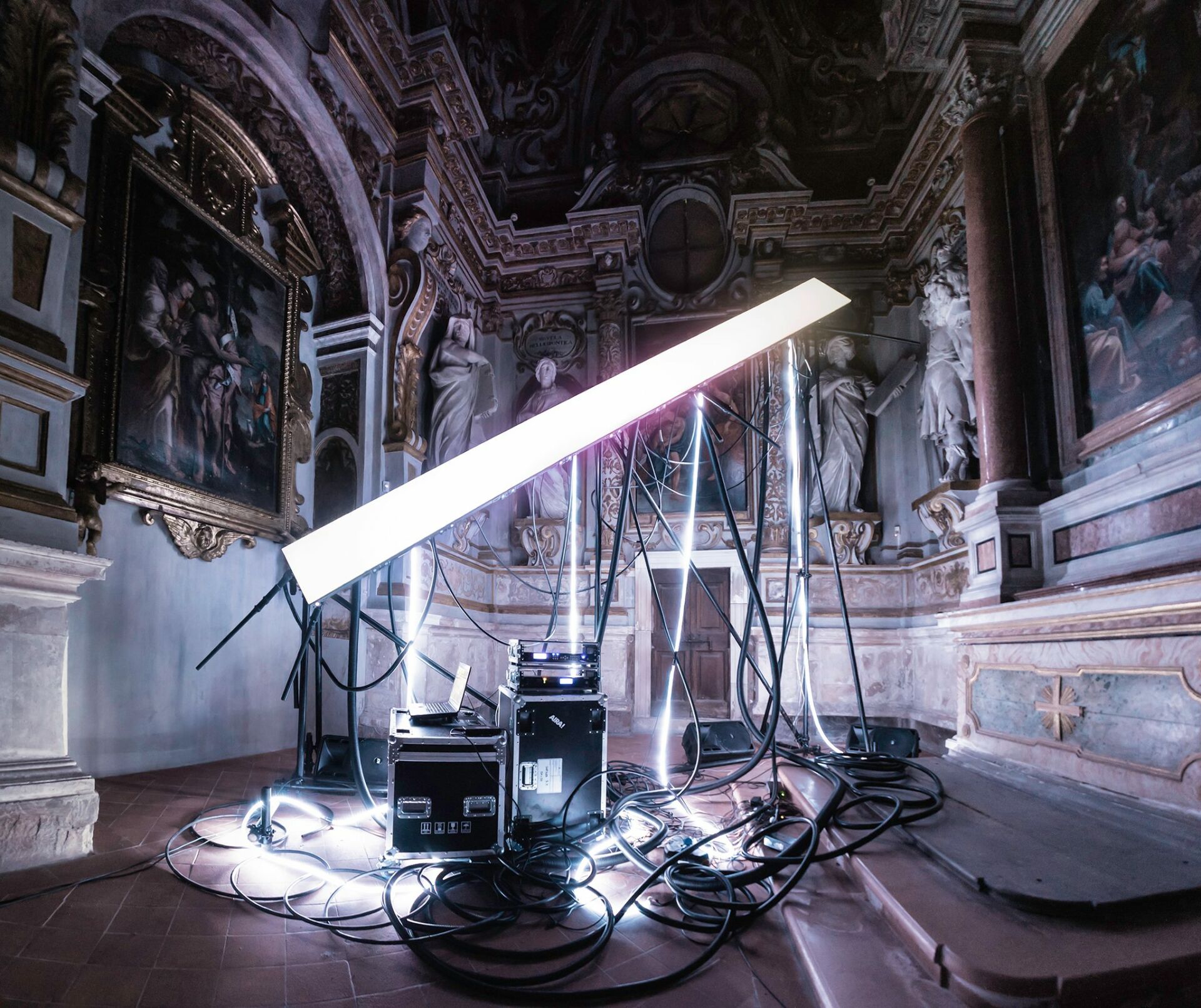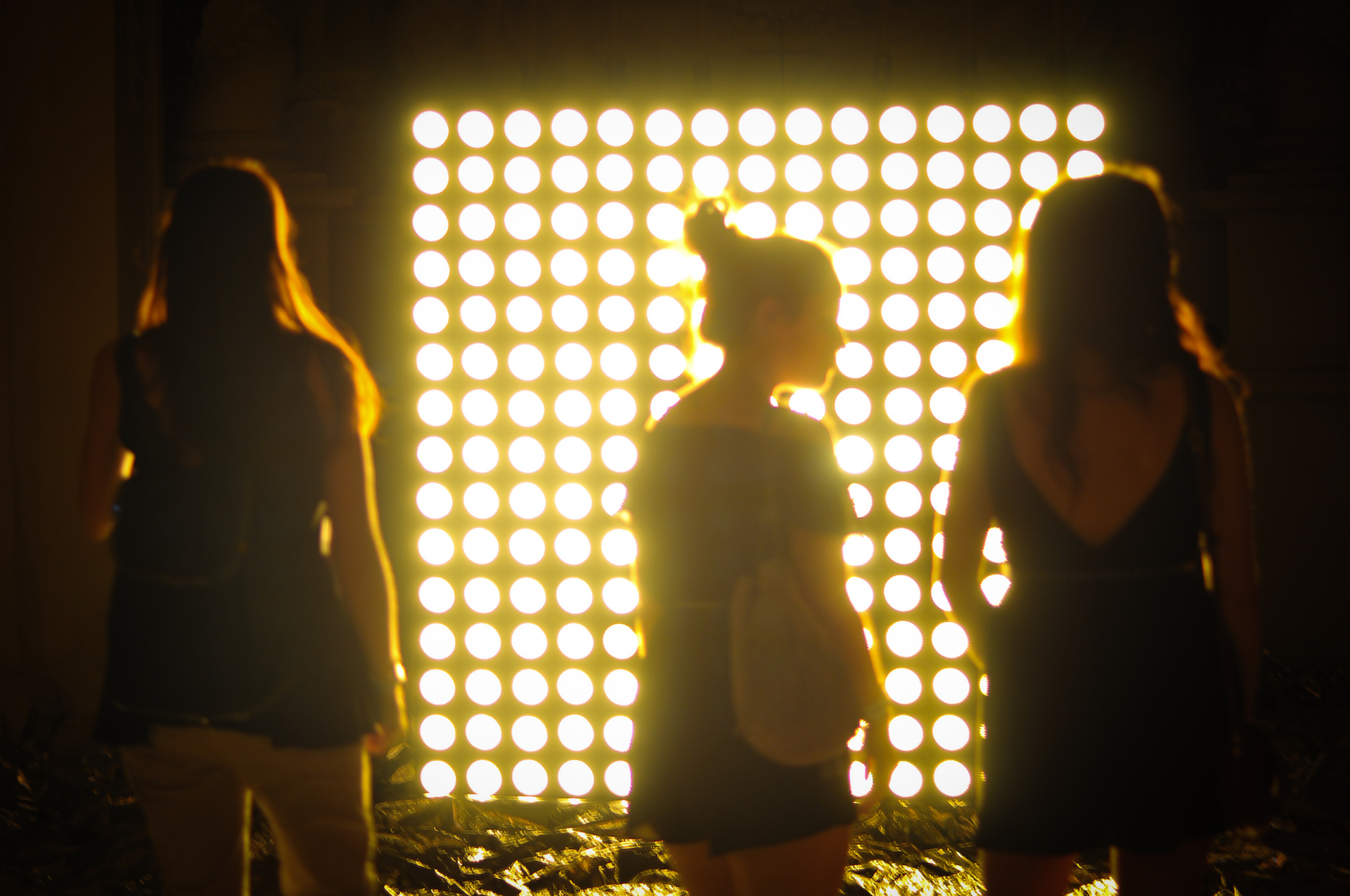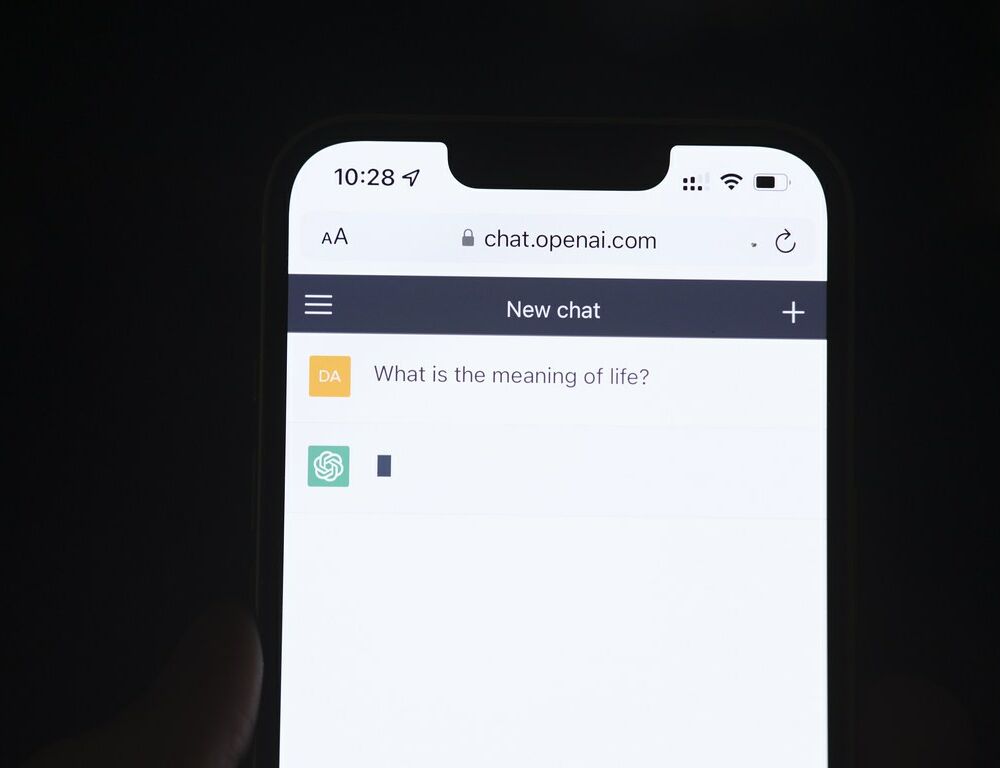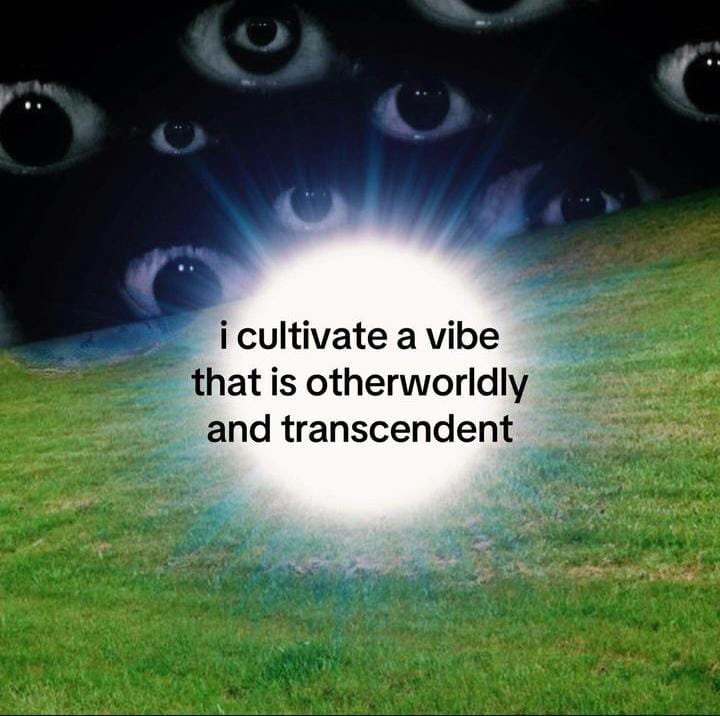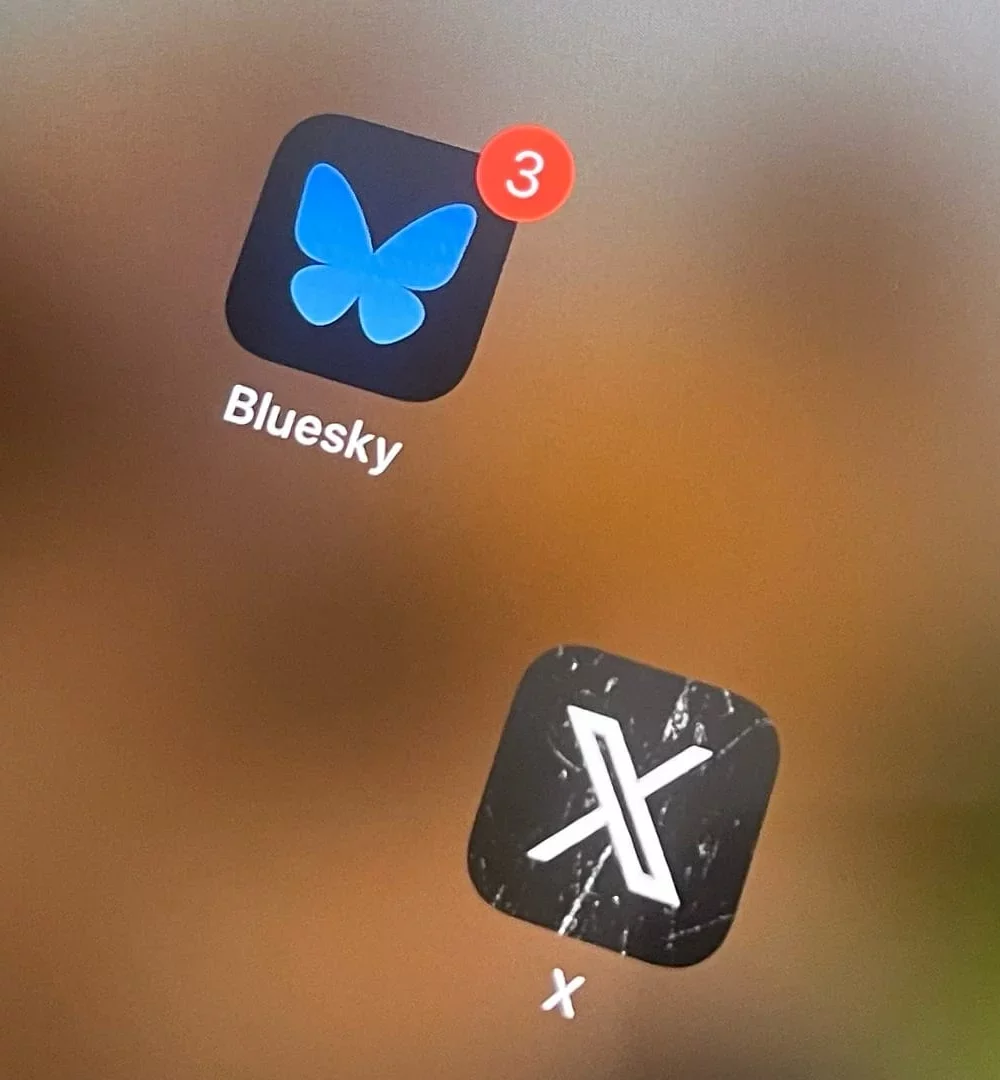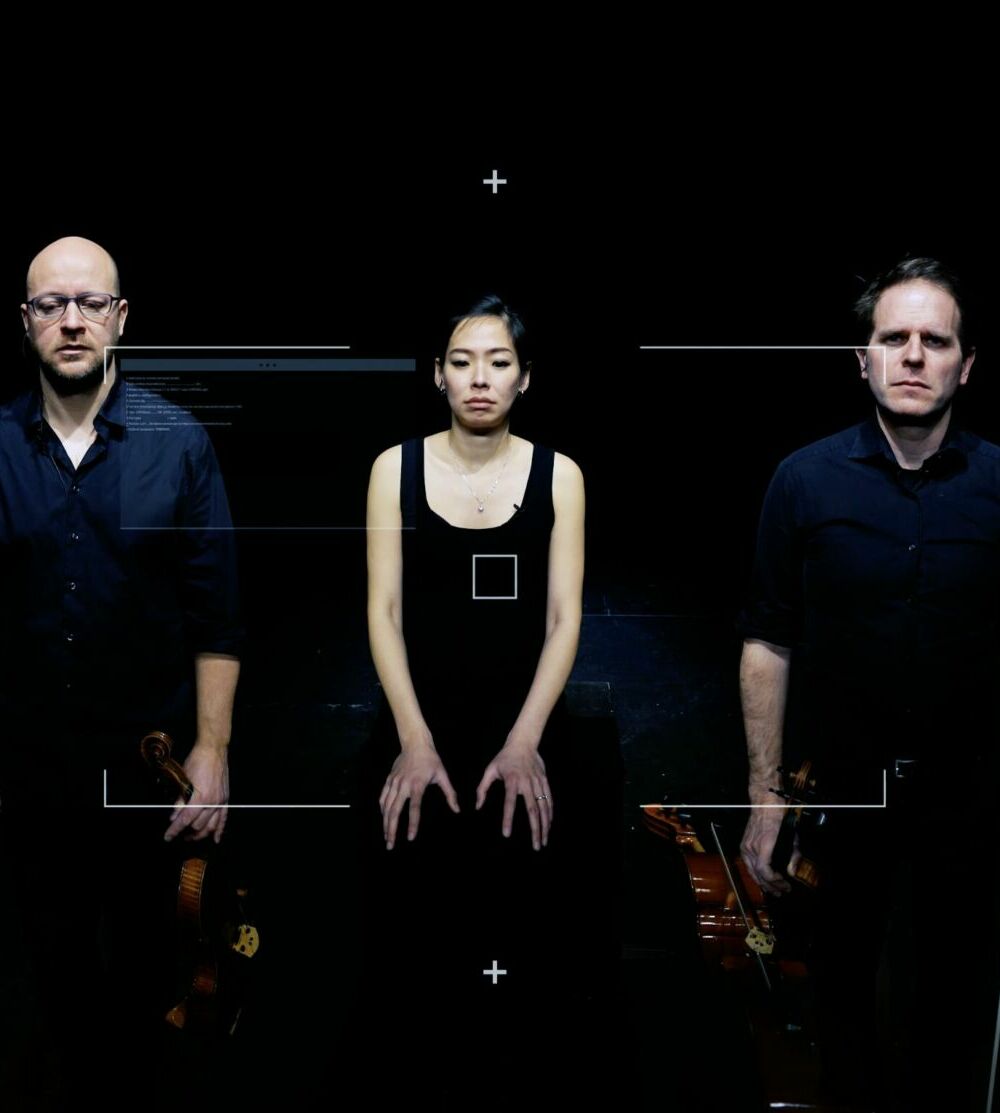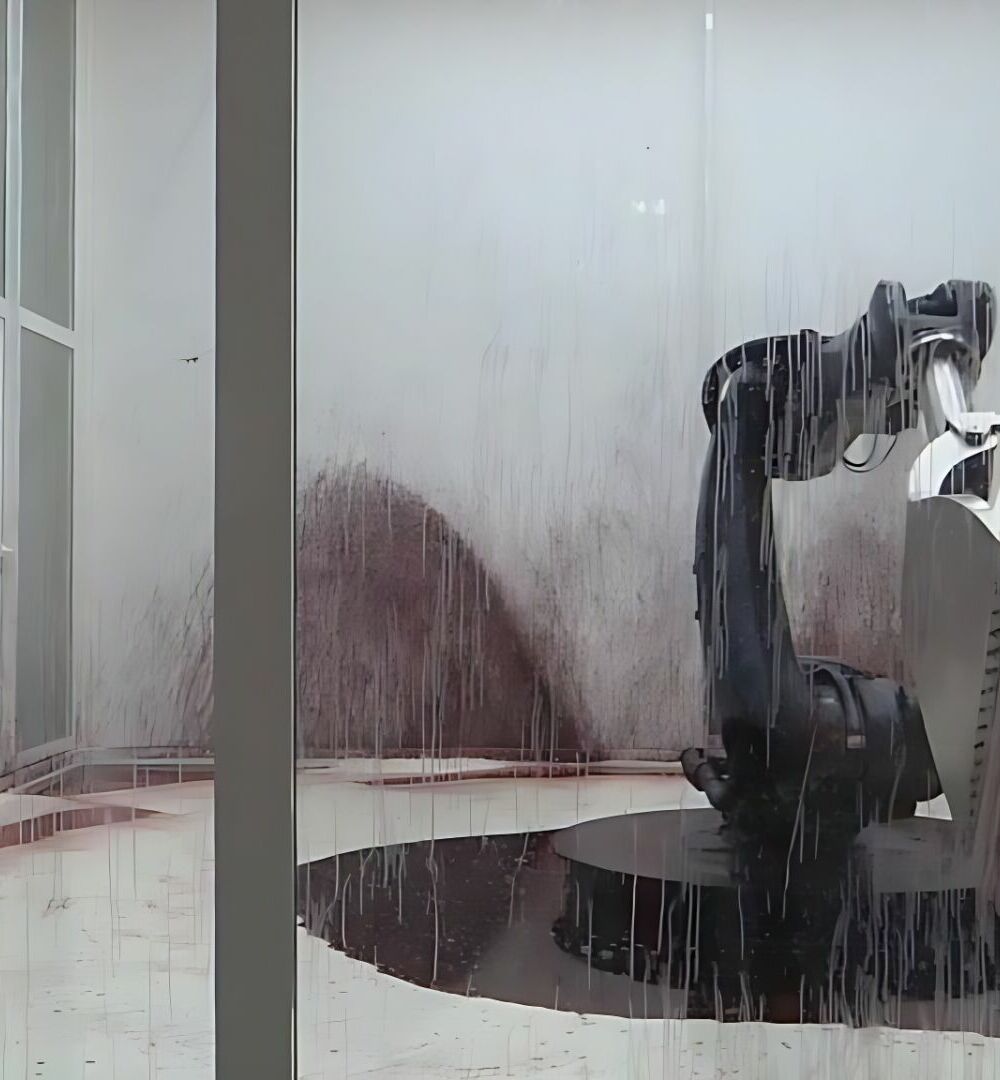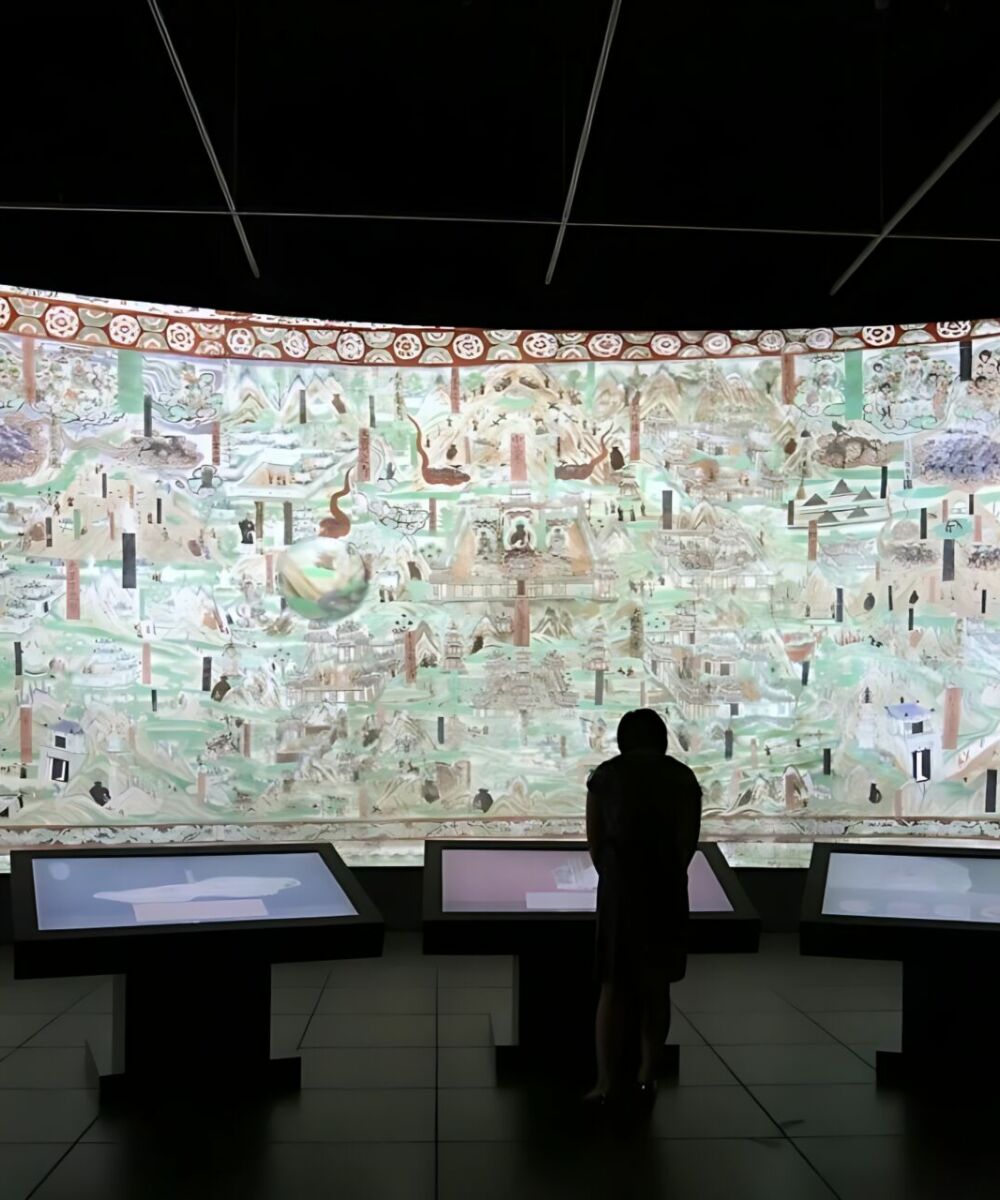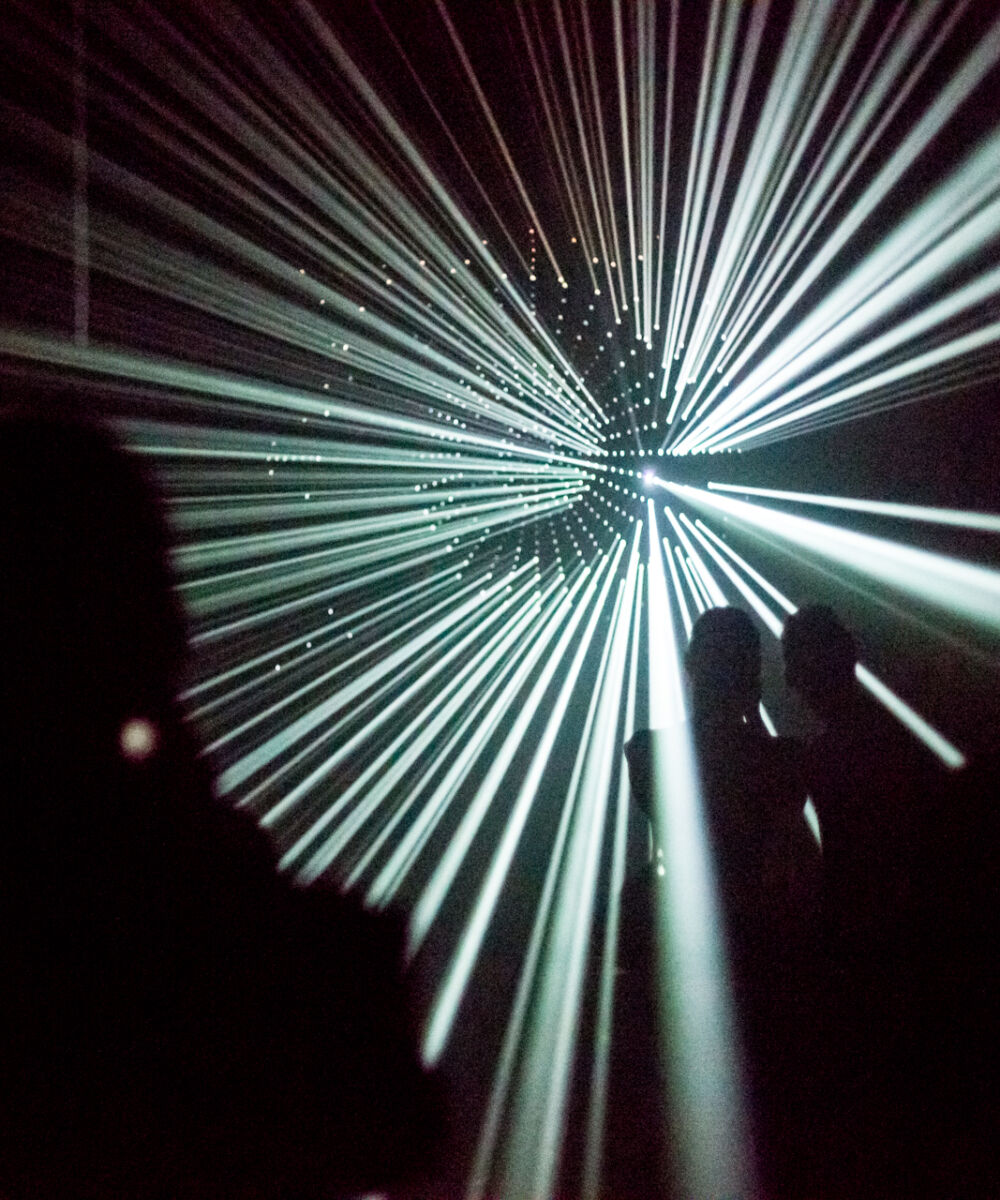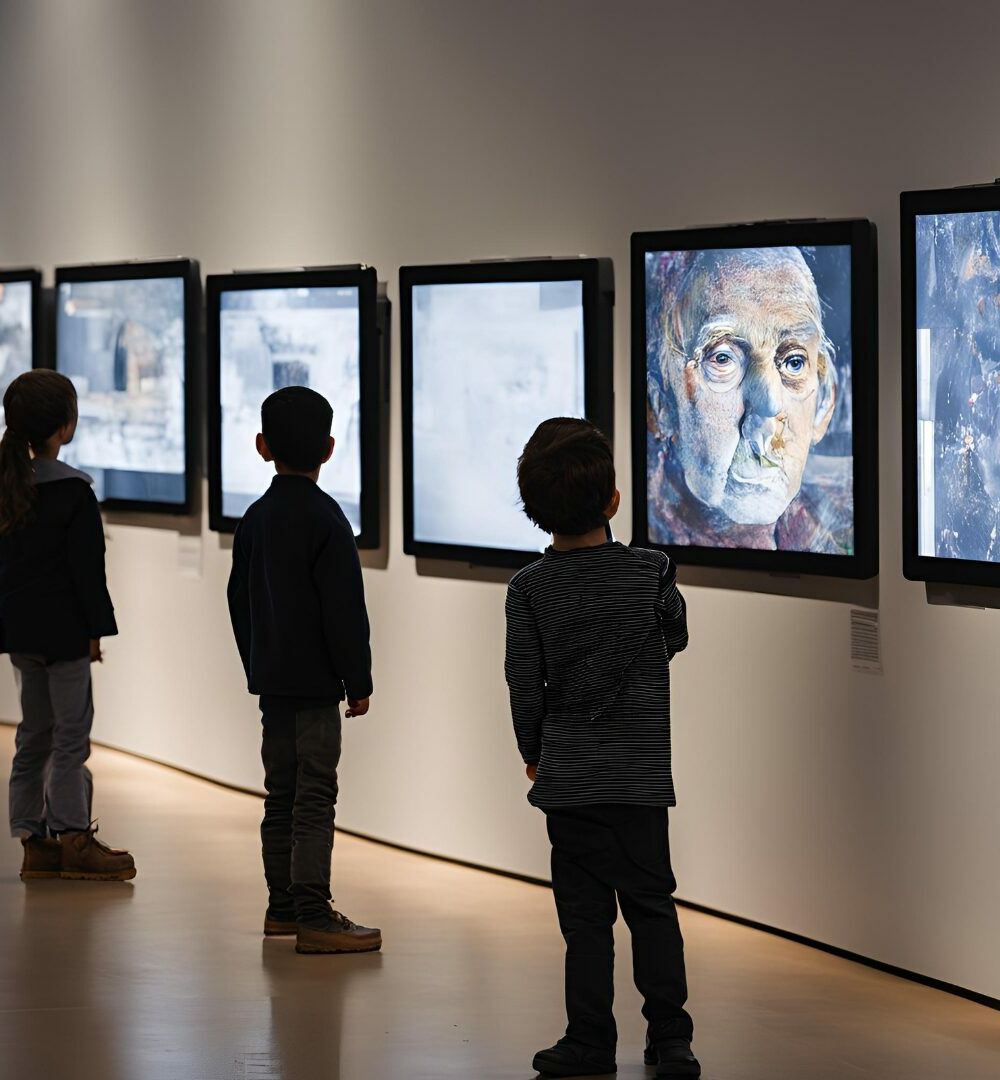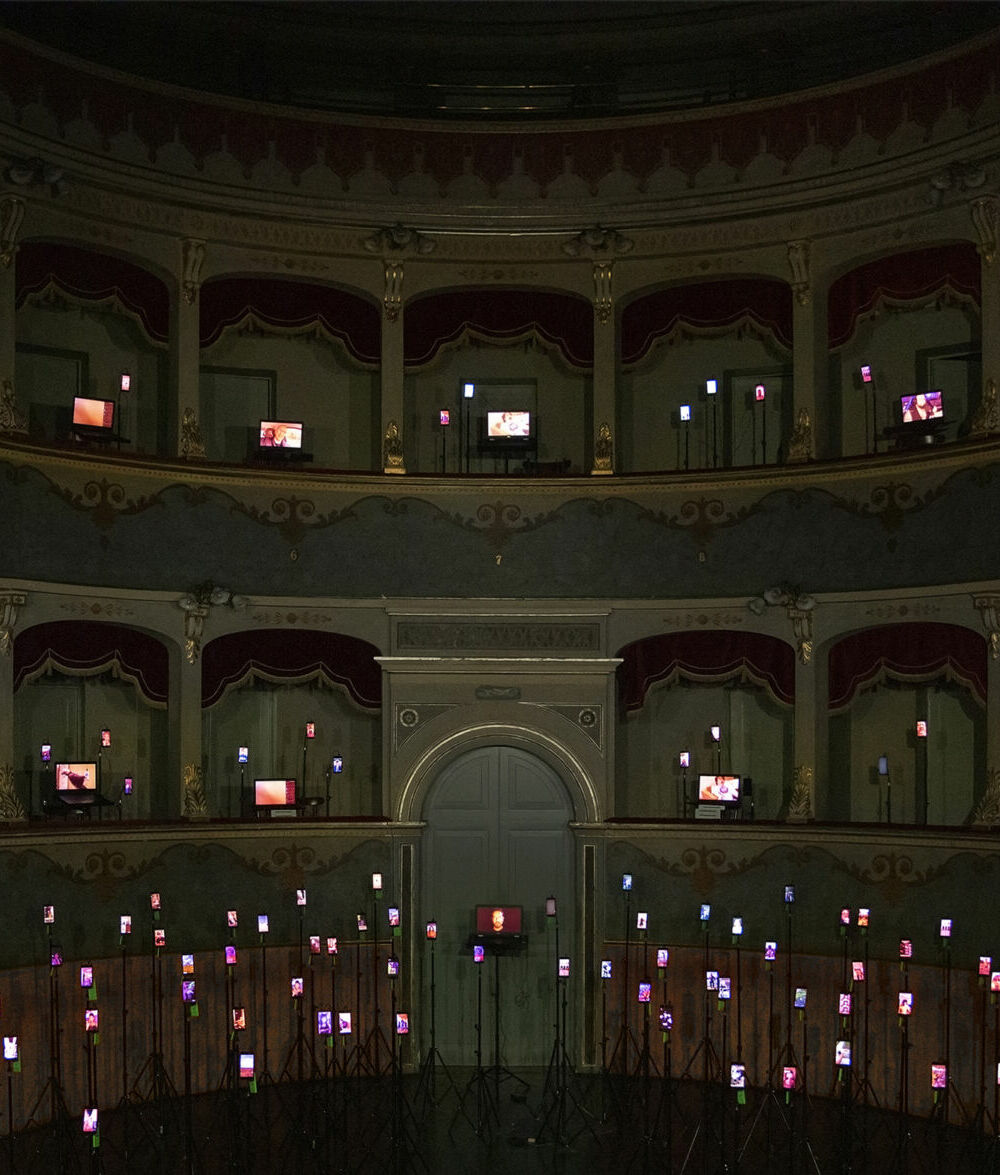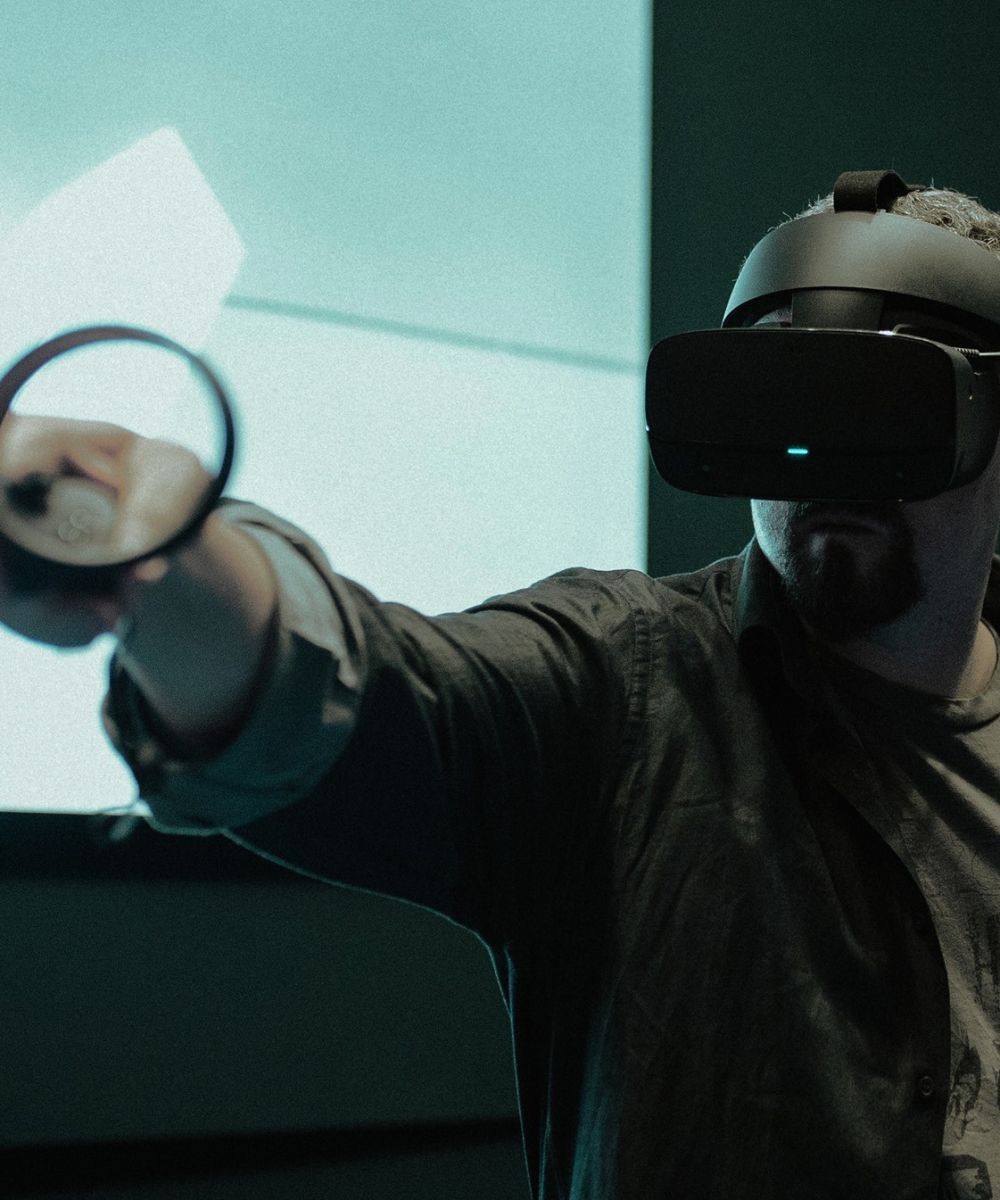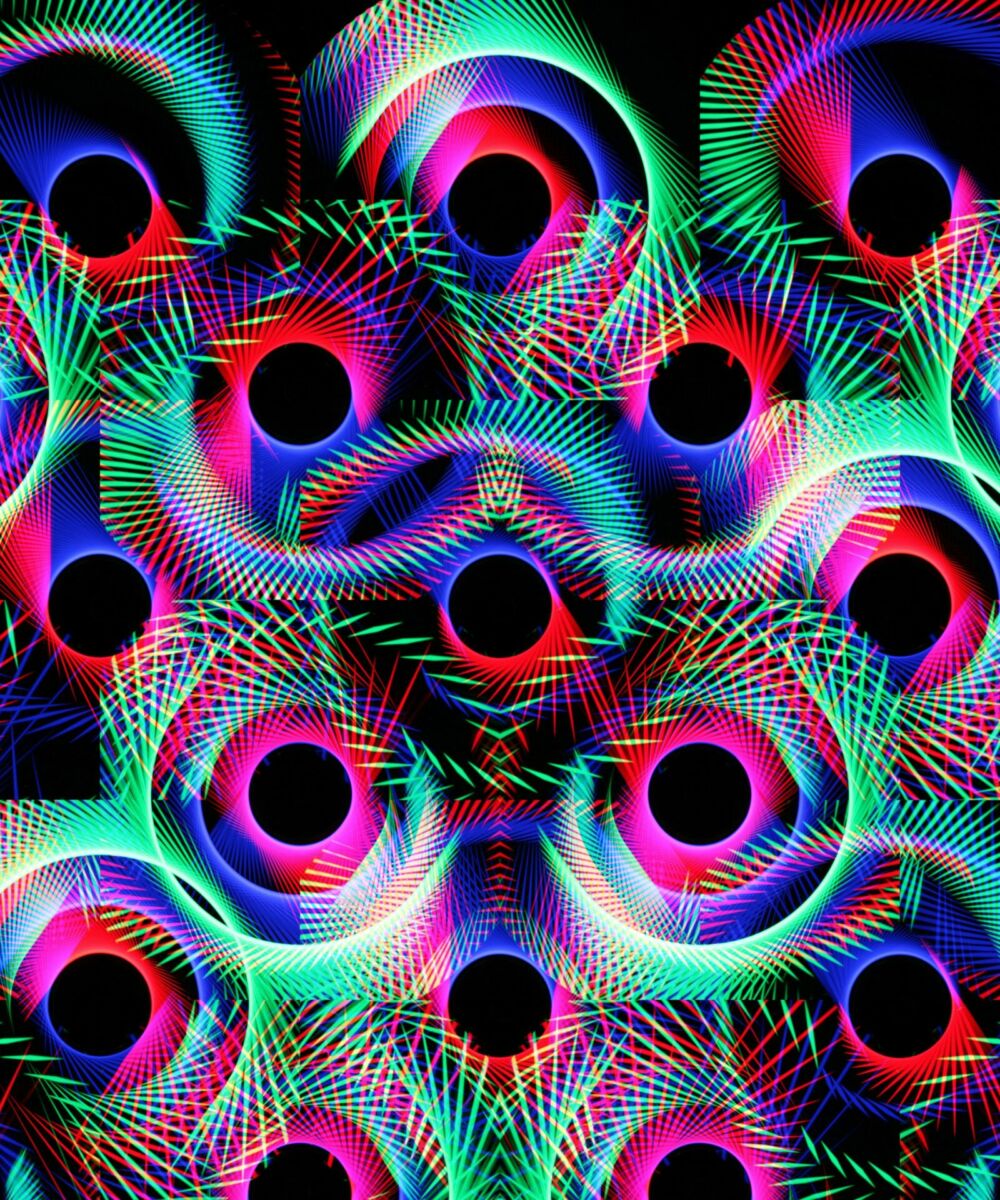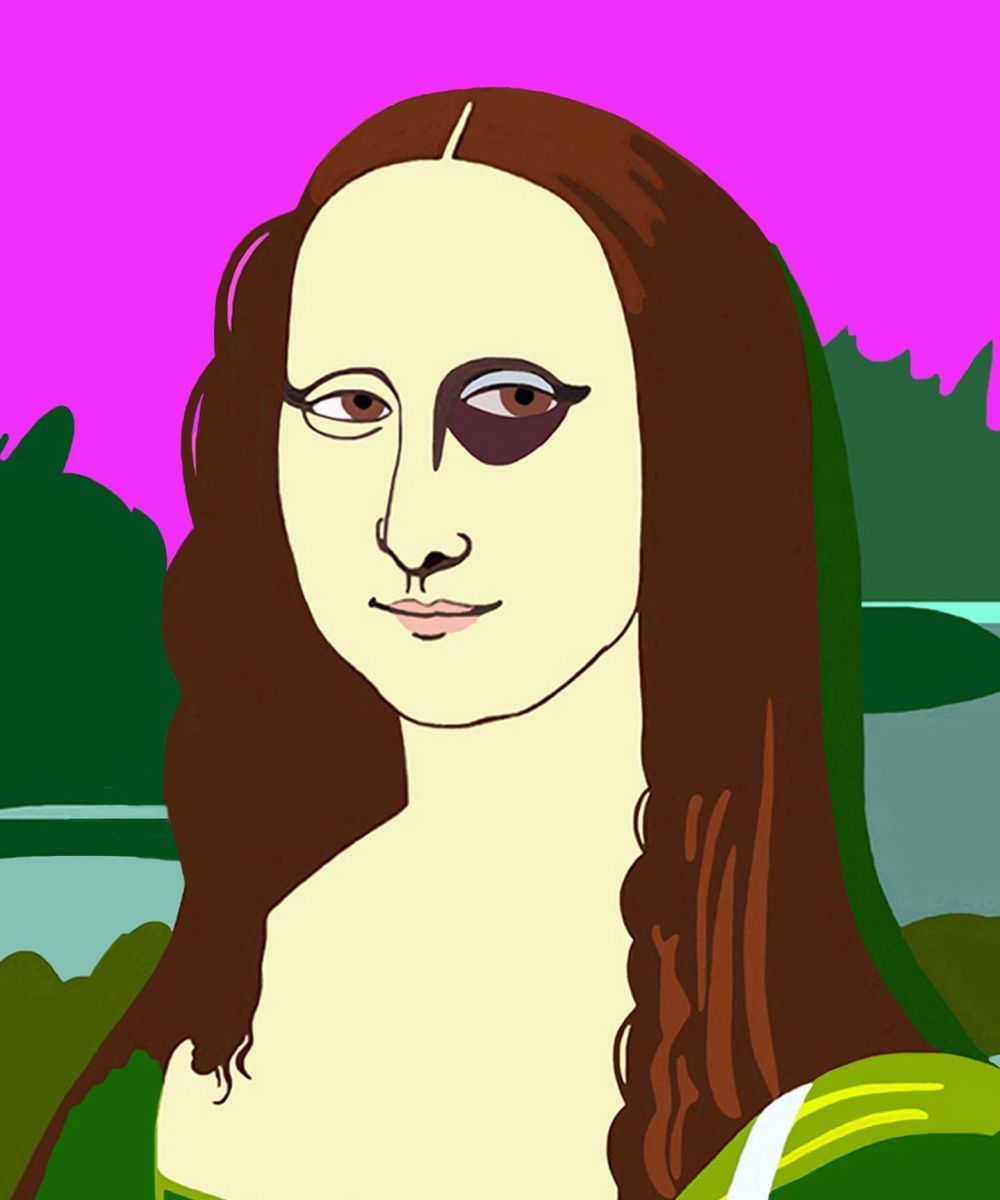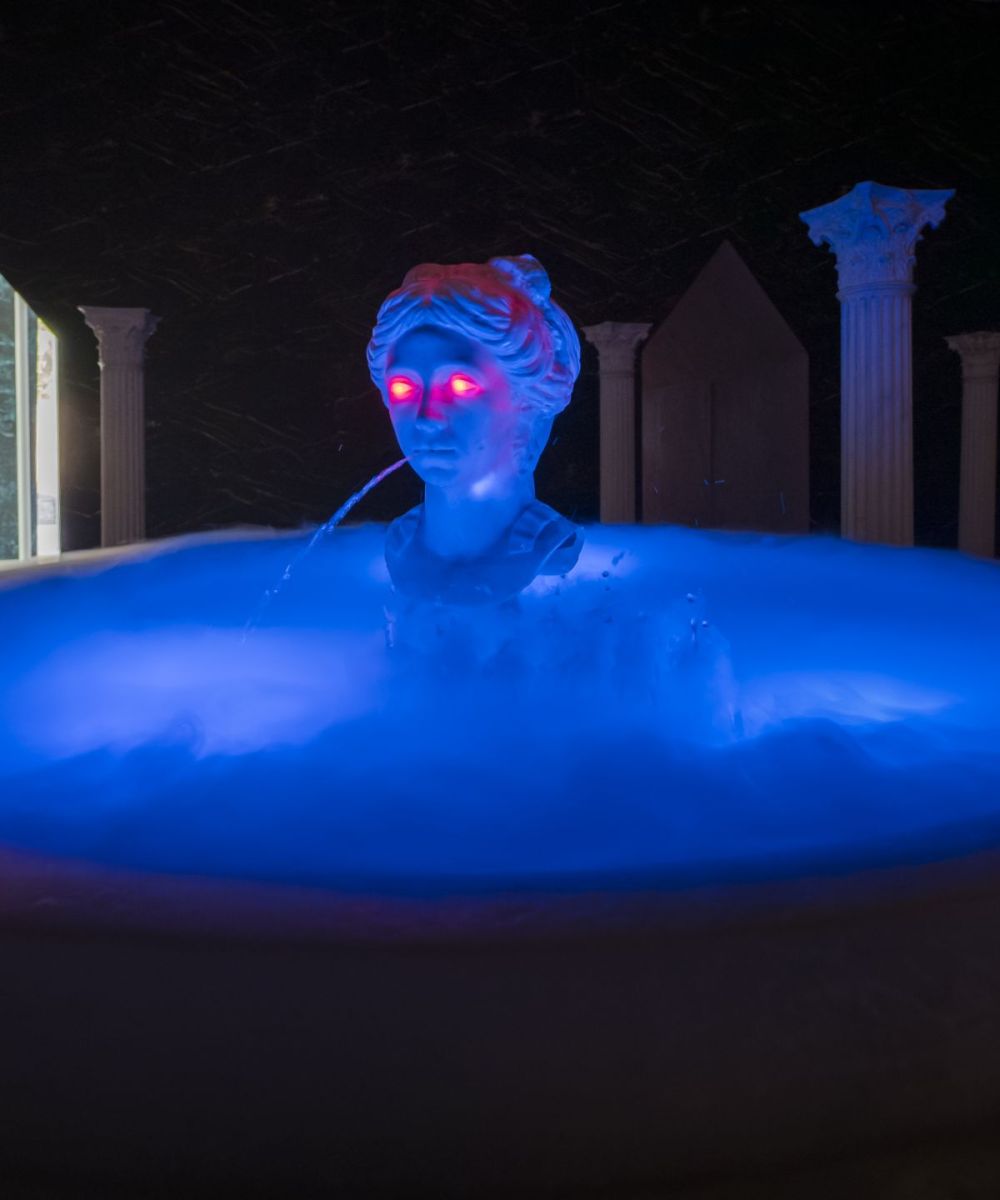Pergola is ready to blossom again thanks to the Blooming Festival
by Alessandro Mancini
There is a festival in Italy, unique in its genre, completely dedicated to numerical and digital arts; the Blooming Festival is held in Pergola, a charming small town in the Pesaro and Urbino province in the Marche region. It has also been elected one of the most beautiful villages in Italy. Numerical art, often called digital art, includes all forms of art created or presented using digital technology. This term comprises a vast range of artistic methods, that use computer instruments and technologies for their creation, transformation and fruition.
The town is mainly renowned for its prestigious vineyards and wine production and for the group of ancient Roman gilded bronze statues from Cartoceto di Pergola, probably dating from 1st century AD. Since 2017, every year, Pergola has become the driving force behind artistic expression in the field of digital culture, music and electronic arts in Italy and Europe. The eighth edition of the festival will be held on Friday 6th and Saturday 7th September 2024. Once again, Italian and international creative studios and artists will animate the historic centre of Pergola with installations, video projections and performances set in unusual and unique age-old buildings.
Sacred spaces (churches), hidden sites (gardens) and underground locations (cellars) are filled with projections, images and sound, proposing interpretations in contrast with the urban context, to stimulate the curiosity of visitors, while helping enrich the historical-architectural heritage of this small town in the Marche.
“Blooming never imposes an established theme,” explains the creator and founder, Rita Camilucci. “Every edition is based on the concept inherent in the name “To bloom”, understood as the process of evolution and growth. Like a flower that blooms in the middle of asphalt, the multimedial arts “sprout” in a dark underground core space: in a wine cellar, or a church crypt, gradually spreading throughout the town by means of light, sound, and technological devices”. According to Camilucci each edition assumes its own coherence: “For example, this year as a consistent theme, in every work, the festival has adopted a natural element explicitly present in some form (water, sun, fluid, the human voice, trees, etc.)”.
Blooming Festival represents a unique platform in the Italian panorama of events linked with numerical art, and for this reason, every year, various artists from a range of European countries come to take advantage of the visibility provided by the festival, to promote their work and artistic experimentation. This year, among others, artists include Martin Messier from Canada, Encor studio from the Czech Republic, Guillaume Marmin and Roman Hill from France, and Amelie Duchow from Germany. Italy is represented by Ultravioletto, Mauro Pace, Nessie Studios, Cora, and the Bad Clipping Studio.
each edition takes shape on the basis of the concept inherent in its name, i.e. ‘flowering’, understood as a process of evolution, growth
Rita Camilucci was born in Rome in 1981, and moved to Pergola in 2017 to set up a tourist activity and establish the Associazione Culturale Palazzo Bruschi that organises cultural and gastronomical events. The same year she decided to set up the Blooming Festival, involving the renowned creative duo Quiet Ensemble, who curated the artistic direction.
The organisers explained: “We choose artists who work with technology, not as an end in itself, but as an instrument and medium to express something deeper; artists who work skilfully, in contrast with the locations that are available, because, it is precisely that contrast between technology and ancient spaces that we wish to highlight. We have worked with over 80 fascinating artists during the seven festivals, (including Nonotak, Olivier Ratsi, Ryoichi Kurokawa, Quayola, Cod.act, Maotik, Guillaume Marmin, etc.) and we are proud to have exhibited their work. For some artists, the Pergola Festival was the first time they had shown their work in Italy. Marmin will return this year with Oh Lord, a video projection based on the processing of solar images; we will also be welcoming another French artist Roman Hill, who creates artificial galaxies within magnificent, hypnotic videos using macroscopic enlargements of fluids and dust (without using computer generated imagery, but exclusively natural elements). On the other hand, Amelie Duchow is working on a long term project on the sound of the voice and the spoken word, Logos mater: She collects audio examples from all over the world to create voiced traces where the word is no longer discernable, but the sound process still remains, along with all its emotional content. Martin Messier will also be participating with a new performance. The rest of the line-up is a surprise: we can only say that these are artists we are very proud to present”.
This year’s Blooming Festival is also part of a wider event: Pesaro 2024, Italian Capital of Culture. For this occasion, Nessie Studios will present its interactive installation, Nativ0e, specifically adapted to feature blue as a theme, included in the section, La natura operosa della cultura.
Another particular aspect of the Festival is the ‘open call’ instrument. One of the projects presented was selected through the international call #bloomingyo, which, this year, was focussed on social and environmental sustainability, themes on inclusion and accessibility, and the use of sustainable/inclusive techniques and technology in the creation of the various projects. The projects were evaluated by the curators, Federica Patti and Filippo Lorenzin with the festival’s artistic direction committee.
Among the special proposals is a new virtual reality project created by Bad Clipping Studio; an original workshop for adults and children. In fact, this year, the Blooming concept will be interpreted with unusually analogue mediums: a program of water colour classes taught by the illustrator, Karla Duenas.
The organisers commented,“We like the idea of sharing this type of art in a contrasting context which, in a certain sense, is the complete opposite of our usual experimentations, like that of a small town of an internal region, but where “flowers” have the potential of blooming with more vitality and beauty. We enjoy bringing the local population something new or unusual to places that they are very familiar with, like a cellar, or a church, part of local tradition (even though after seven years, many have a good understanding of what we do, they are responsive and give us a lot of support). We have been working for seven years so that these flowers will branch out and grow; luckily Blooming has now become a well-known festival”.
Alessandro Mancini
Has a Publishing and Writing degree from Sapienza University in Rome; he is a freelance journalist, content creator and social media manager. From 2018 to 2020 he was editorial director of the online magazine Artwave.it, which he founded in 2016, specialised in contemporary art and culture. His writing is mainly focussed on contemporary art, work, social rights and inequality.


